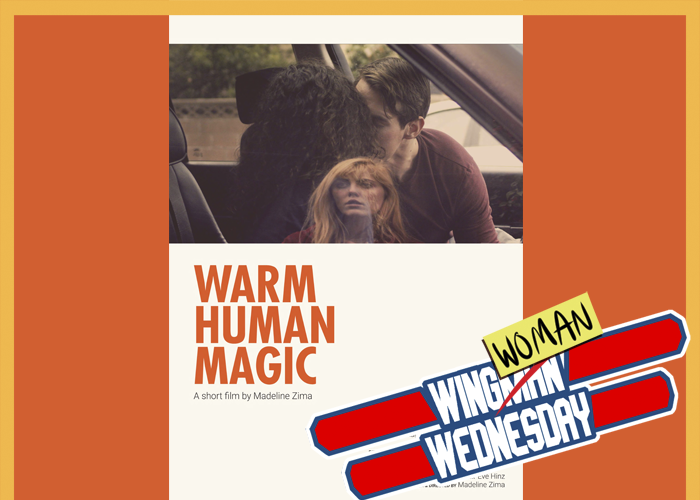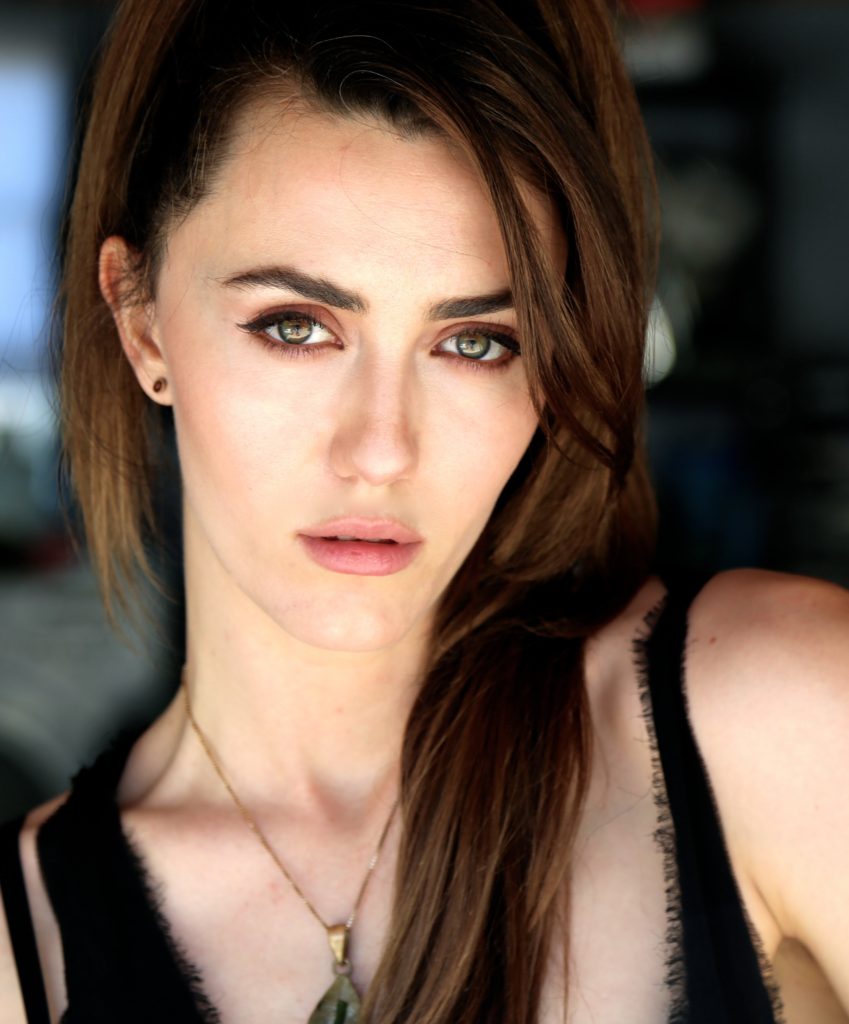
The creative fulfillment Madeline Zima gains from being on a set is visible in the way she speaks so passionately about her craft, and it makes sense considering she has been working in front of the camera since she was a child. After spending most of the 1990s starring on the CBS sitcom “The Nanny,” the Connecticut native went on to build an impressive career through performance, including a memorable turn as Mia Lewis on the series “Californication” where her presence was felt in every single scene she appeared in. Now she’s making that presence known on the other side of the lens, writing and directing her first project, the short film “Warm Human Magic,” which is set to have its world premiere at the Dances With Films Festival in Los Angeles on June 14.
The film, which she calls very personal, stars her sister Yvonne Zima, Chasen Bauer and Adrienne Barbeau, with a score crafted by James Iha of The Smashing Pumpkins.
We recently sat down with Zima to discuss her connection to the film, why 99 percent of our digital imprints are not as they appear, and how pouring herself into “Warm Human Magic” for the last year has been a breath of creative fresh air.
TrunkSpace: The scene from your film that really resonated with us upon watching it is when Mary, played by your sister, is on her laptop and phone, but also talking with Siri. Within this crazy device-driven society we’re living in, she couldn’t even be present for Siri. That really struck us.
Zima: Thank you. There was some talk of maybe cutting those scenes, and I’m like, “No! The whole point is the TV is on in the background, she’s got her laptop, she’s also on her phone.” That’s one of the main points of where we’re at in society, and where we’re at personally in our lives, not being present to any part of our lives. We can’t even choose a screen to be present on.
TrunkSpace: And in a way, for the character, Siri becomes her only human connection, which is probably how most of us feel in our day to day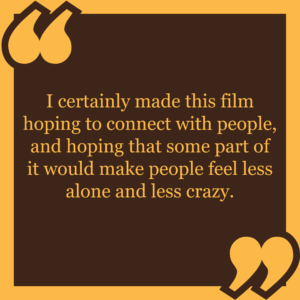 now… sort of disconnected from each other.
now… sort of disconnected from each other.
Zima: Yeah. We have all these substitutes for real human connection, which is what we’re all searching for so desperately. I mean, I feel like pretty much anything in life has to do with wanting some kind of acceptance, connection, validation… that we seek that love, for lack of a better word. (Pause) I think it’s a perfect word. We seek that love on every level through every avenue. I certainly made this film hoping to connect with people, and hoping that some part of it would make people feel less alone and less crazy. And I had to finish it soon because I’m in my thirties now. I’m in my early thirties, but still, I don’t connect to it as much as I used to. This was definitely sort of a love letter to my twenties, and the way that I went about trying to connect to people was so wrong.
I would, in my early twenties, go to a bar or whatever because I didn’t have anywhere else to go because I didn’t have a community yet of people and places to gather. And so you go to a place that’s terribly dark, where you can’t hear anyone or see them, and try to have a conversation, and it doesn’t really work. Then we use substances to try to help us feel a little bit more freer to connect, and that doesn’t really work either. It takes us even further away as well from being present in our lives, which we’re getting less and less good at.
TrunkSpace: And nowadays it seems people are more in tune with seeing what other people are doing in their lives via social media instead of living their own lives.
Zima: Yeah, and chasing illusions because everybody who has any kind of digital image, knows that it’s 99 percent bullshit. You’re putting something out there that’s the best angle, the best version. And then there are people who are brave and confident enough to put less than perfect versions of themselves out there. I confess, I’m not one of those people. I very rarely put up a picture where I don’t have makeup on, and that’s… I wish I felt free and confident enough to put stuff out like that, but I still have a long way to go as a human being, so I’m very honest about those kinds of things. It’s a bizarre world that we live in.
TrunkSpace: Well, and being a creative person, you’re now in a position where this film is going out into the world and will also be judged. That must add a whole different layer to it, because now you’re sort of exposed in a different way?
Zima: Yeah. I’m so excited about that though, because although it’s my first time writing anything or directing, I’m very proud of this as a first effort. I’m very proud of the work that everybody put in – that everybody worked for free basically, except for one or two people, crew and sound. But the actors and the composer, and everybody else, did it for free, and just empowered me creatively to try to make the best version of this story I could make. And I’m actually really so happy to share it. My sister is in it and she’s fabulous. And Chasen Bauer, the lead actor, is fabulous. And Adrian Barbeau, I worked with her on a film while I was doing post on my short, and I just asked her on a lunch break if she would do the voiceover, and she so graciously, again, also worked for free, and just offered her talents and her incredible voice to that beginning scene, which is really important. I was just so grateful of the generosity of people to help out with this, and to support me as a first time writer / director.
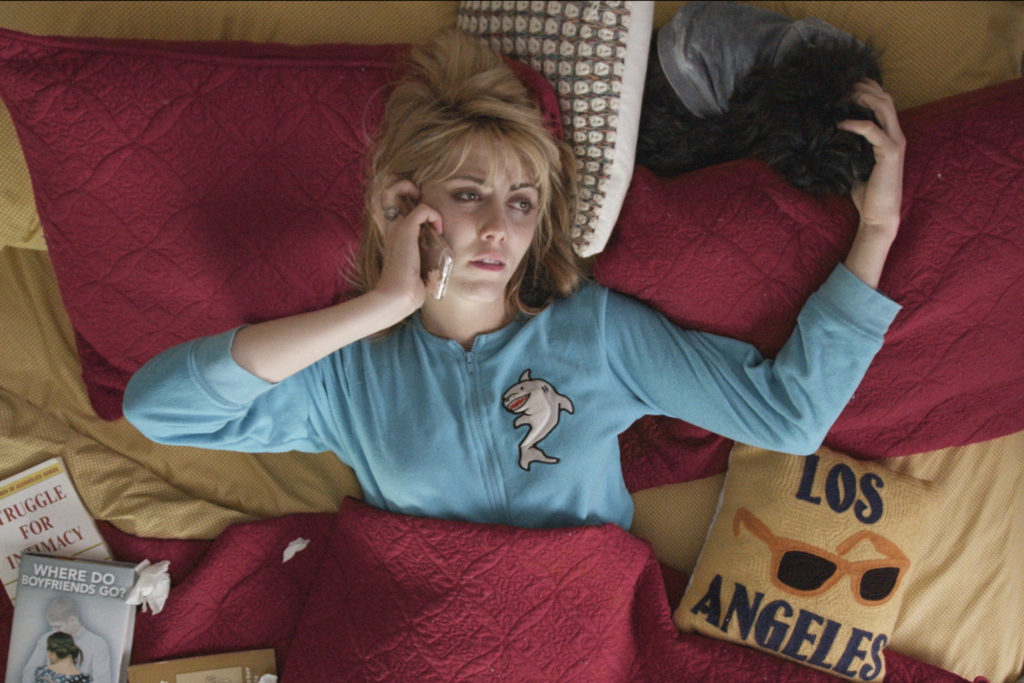
TrunkSpace: Did you find that writing and directing fueled an aspect of your creative brain that acting do…
Zima: Yes! (Laughter) I don’t even need you to finish the question. Yes! Yes! Yes! I feel like for the first time ever in my 30 years of being an actor that I was actually empowered creatively. I mean, there was probably one or two other films where I felt, as an actor, empowered, but very few directors give you that. Very few combinations of different energies, and actors, and you know… very few combinations will allow you to feel the kind of creative freedom you should feel, and this was the first time. I put up my own money. I did everything myself. I was my own PA, running gear around town.
I actually had somebody offer me to make the film for about 10 times as much money as we actually ended up making it for, but their company wanted to own it. They would have paid for festivals, and everything like that, which would have been fabulous, but I wouldn’t feel the same creative freedom that I felt having complete ownership of what I wanted the story to be about, which is a combination of different things for me. It’s hard to sort of pin down exactly what it’s about. When people ask me… “Well, it’s about a girl trying to get laid. It’s about being lonely. It’s about depression. It’s our disappearing humanity in the digital age.” It’s about a lot of things to me, but I hope each person gets a little something different out of it. You’re the first person to say that scene with all the screens was something that stuck with you because, I mean, it was there for a reason, but you never know if it’s all coming across or not.
TrunkSpace: With this being your first foray into writing and directing, did you go into it with nerves?
Zima: All I know is I wrote it, so I felt some ownership of the story, and I felt like I knew what I wanted to do. I definitely spent time doing sort of a sped up version of storyboarding with my DP, and that was really valuable. I spent time on my shot list. I watched a lot of films beforehand. I still didn’t get all the shots that I would have liked to. I think I had a 65 or 66 shot list, and I think we got 50 something of them.
TrunkSpace: Time is one those commodities you can never really plan for on a film set.
Zima: Yeah. We shot seven pages a day. We shot for two days, and that was all we had to cover a lot of ground. Just to scope it, to put it into context, a half-hour pilot that will be about twice as long, just about twice as long, they’ll have seven or eight days to shoot – or five at least. We made really good time considering all the ground we covered with the dialogue and the different locations, but it was also super contained, which was important just to be able to make it an achievable goal. I understand the way a set works more than I understand pretty much anything in life, just because I’ve been on sets so much and over the span of so many years, and I’ve had time as well off of sets to reflect on how it could be done better. I have a respect for all the moving parts of it. My aunt is a Teamster, so I have respect for each part of it, and I always have as an actor.
I think that’s one of the things that helps buoy some of your confidence and lift you up a little bit, but I was nervous. I was nervous that it was not going to cut together. I wanted to cover all of my bases and just prove to myself and to others that I was competent as a director. I always had an inkling that I could direct, and I wanted to direct. When I was a kid, I directed my sisters in films with our little tape recorder, and I had to rewind, and then you stop, and then you record over something, and that’s how you do editing. (Laughter) You edit all the day. It’s been always a part of the dream. Even doing interviews, I’ve always said that I would like to direct, and I’m very proud that I finally have done it, and have not waited for anyone to give me the opportunity. I had to create it myself. I knew that nobody was going to say, “Oh, hey, that actress who was in so and so, or this and that, she might have something to say,” or, “She might be competent enough to direct something.” I know a lot of my male counterparts who are actors had no problem transitioning into directing, and for me people gave me a bit of a hard time about it.
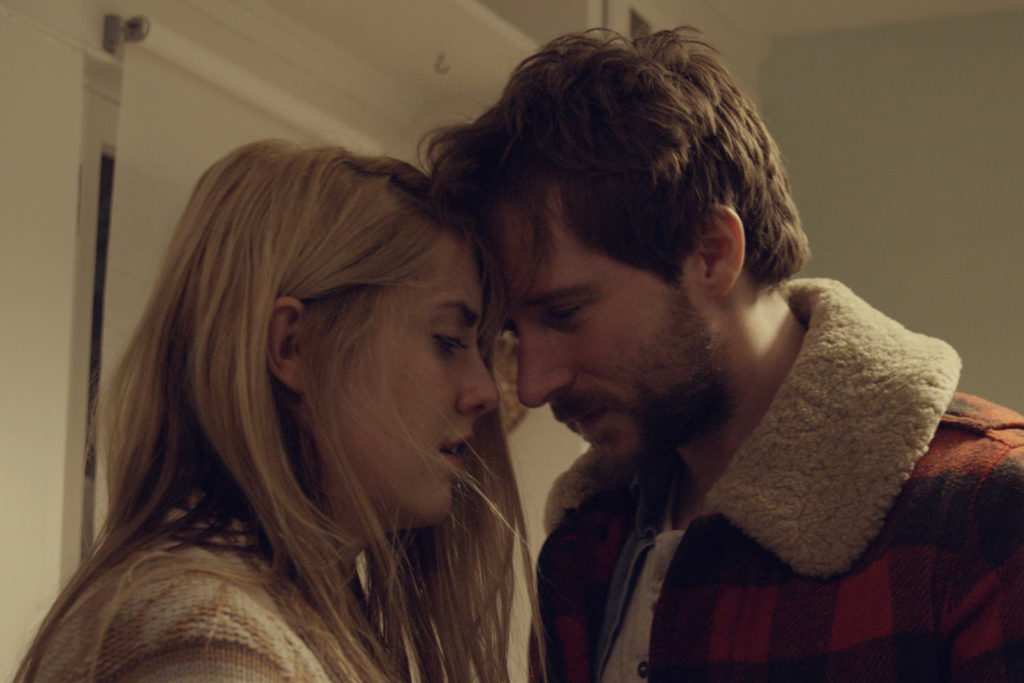
TrunkSpace: Did you consider putting yourself in the film at any point during the process?
Zima: At first I was gonna actually put myself in it, but I respected the process of directing, and wanted to just explore that unto itself. At one point people were like, “Oh, you wrote it? Oh, and you’re gonna direct it? Well, who is gonna be in it? You’re gonna do all of those things?” I’m like, “Well, Charlie Chaplin did it.” It’s actually kind of a natural thing. And the next piece that I do, I don’t know if I’m going to give myself the lead role or anything, but there’s one that I’m working on now and it is something that I’m considering putting myself in, even if just in a Hitchcock, in-the-background way.
TrunkSpace: Now that the film is complete and you did it in the way that you wanted to, do you hope that your peers and people within the industry will see you in a different light?
Zima: I hope so. I hope that people will see that I have more value than I feel like I’ve been given – more value than I feel like people reflect back to me. I surprised myself and I hope to surprise other people with my ability as a director, and my care. It’s obviously a very personal story, and it’s a version of several nights I’ve had with people over the course of my twenties, so I hope to share that in hopes that people go, “Oh, you know what? She could direct this. She might be good to bring on board this…”
I just felt like it was actually like taking a breath for the first time in a long time, and that I had become something that I always wanted to be, which is a very beautiful feeling. I don’t know that I’ve ever felt that. Certainly, you feel creatively satisfying moments as an actor, but they are moments. They’re not this complete process that has gone on for the last year.
For more information on the “Warm Human Magic” screening at Dances With Films, visit here.


